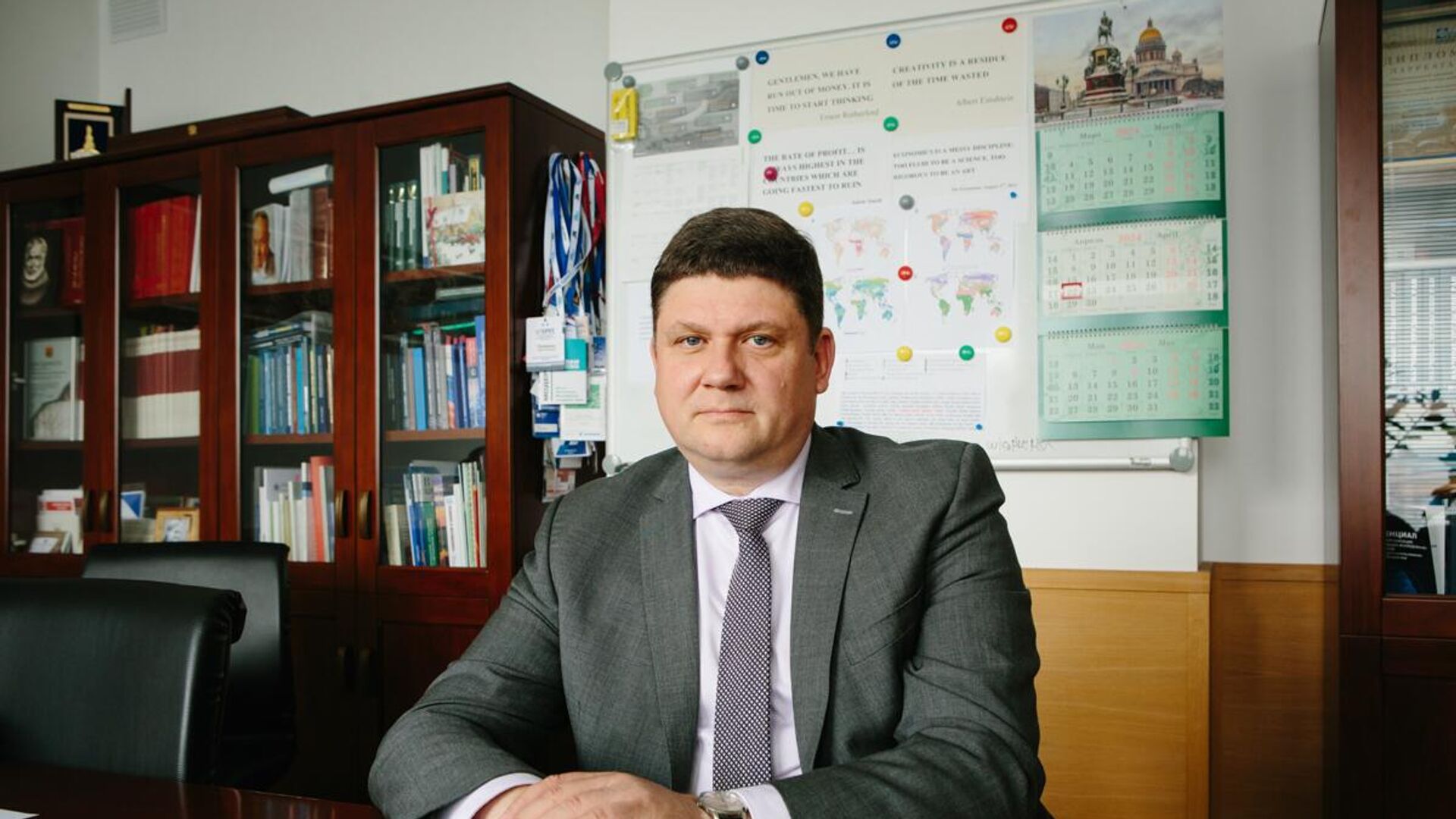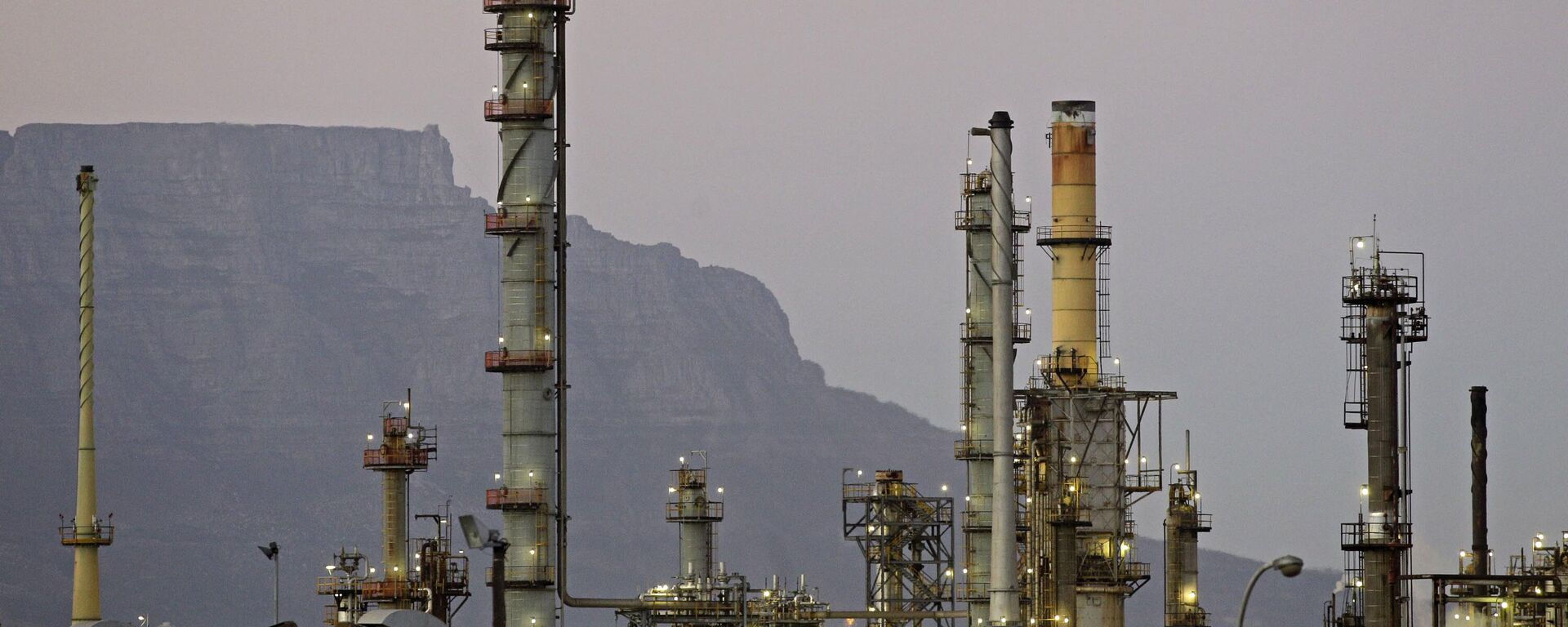https://en.sputniknews.africa/20240825/western-sanctions-undermining-russias-decarbonization-economist-says-1068010736.html
Western Sanctions Undermining Russia's Decarbonization, Economist Says
Western Sanctions Undermining Russia's Decarbonization, Economist Says
Sputnik Africa
The Russian Academy of Sciences is Russia's national academy, a leading scientific institution, which includes centers dedicated to a great variety of studies... 25.08.2024, Sputnik Africa
2024-08-25T18:30+0200
2024-08-25T18:30+0200
2024-08-26T17:35+0200
opinion
russia
sputnik
sanctions
us sanctions
anti-russian sanctions
west
carbon
waste
gas
https://cdn1.img.sputniknews.africa/img/07e8/08/18/1068002382_0:3:1200:678_1920x0_80_0_0_6d3e4289d41bc916313c0627c2a5be2c.jpg
The lack of access to the most efficient technologies in the fields of energy, engineering, chemistry, mining is preventing Russia "from moving forward," Alexander Shirov, doctor of economics and corresponding member of the Russian Academy of Sciences, told Sputnik.According to him, the reduction of greenhouse gas emissions is compromised. The reason is the non-selective restrictions that affect all technologies without dividing them into civilian and military.This will be achieved by increasing investments in research and development. In the face of competition, it is crucial to acquire the most vital critical technologies, he emphasized. Without these critical technologies, the efficiency of the Russian economy will be hampered.How to Finance Carbon Neutrality?By completely ignoring decarbonization, greenhouse gas emissions will increase while causing economic growth to decline, the analyst warned. Inaction is not an option.Calculations have been made by Russian specialists to determine what percentage of GDP Russia should devote to decarbonization.If we increase spending to 3%, the loss in terms of economic growth could amount to one percentage point, with the cumulative loss becoming significant in 30 years; therefore, this option is not feasible, he added.How to Achieve Carbon Neutrality?Decarbonizing Russia means, first of all, increasing the efficiency of the national economy, the academician explained.He emphasized that 90% of greenhouse gas emission reductions result from broader economic development, not specific actions.He also recalled that 90% of greenhouse gas emissions reduction is not due to any specific actions but is rather a result of economic development. In this way, economic growth and a reduction in the carbon footprint are achieved simultaneously.However, a low-carbon development strategy is being developed, outlining several key steps:Shirov warned that before considering any measure, its impact on the population must be taken into account. In fact, an aggressive policy of reducing greenhouse gas emissions could harm both the economy and the inhabitants of the country.He cited the example of installing large solar or wind power plants as an illustration. These installations are much more expensive than modernizing conventional energy sources. As a result, consumers have to pay a high price for the electricity they produce.
https://en.sputniknews.africa/20240724/south-africa-takes-major-step-toward-climate-action-by-passing-its-first-comprehensive-climate-bill-1067615850.html
russia
west
Sputnik Africa
feedback@sputniknews.com
+74956456601
MIA „Rossiya Segodnya“
2024
News
en_EN
Sputnik Africa
feedback@sputniknews.com
+74956456601
MIA „Rossiya Segodnya“
Sputnik Africa
feedback@sputniknews.com
+74956456601
MIA „Rossiya Segodnya“
russia, sputnik, sanctions, us sanctions, anti-russian sanctions, west, carbon, waste, gas, nuclear fuel, nuclear energy, gdp, renewable energy , economy, economic growth
russia, sputnik, sanctions, us sanctions, anti-russian sanctions, west, carbon, waste, gas, nuclear fuel, nuclear energy, gdp, renewable energy , economy, economic growth
Western Sanctions Undermining Russia's Decarbonization, Economist Says
18:30 25.08.2024 (Updated: 17:35 26.08.2024) Ekaterina Shilova
Writer / Editor
The Russian Academy of Sciences is Russia's national academy, a leading scientific institution, which includes centers dedicated to a great variety of studies. It was founded in 1724 by Emperor Peter the Great.
The lack of access to the most efficient technologies in the fields of energy, engineering, chemistry, mining is preventing Russia "from moving forward," Alexander Shirov, doctor of economics and corresponding member of the Russian Academy of Sciences, told Sputnik.
According to him, the reduction of greenhouse gas emissions
is compromised. The reason is the non-selective restrictions that affect all technologies without dividing them into civilian and military.
"Everything is closed, and it certainly prevents Russia from achieving carbon neutrality," the economist said. "But we will have to solve the problem of the technology deficit with the help of friendly countries or by our own means."
This will be achieved by increasing investments in research and development. In the face of competition, it is crucial to acquire the most vital critical technologies, he emphasized. Without these critical technologies, the efficiency of the Russian economy will be hampered.
How to Finance Carbon Neutrality?
By completely ignoring decarbonization, greenhouse gas emissions will increase while causing economic growth to decline, the analyst warned. Inaction is not an option.
Calculations have been made by Russian specialists to determine what percentage of GDP Russia should devote to decarbonization.
"If we invest 2% of GDP and use the most effective and least costly means to reduce emissions, an economic growth rate of 3% and carbon neutrality by 2060 are realistic," Shirov explained.
If we increase spending to 3%, the loss in terms of economic growth could amount to one percentage point, with the cumulative loss
becoming significant in 30 years; therefore, this option is not feasible, he added.
How to Achieve Carbon Neutrality?
Decarbonizing Russia means, first of all, increasing the efficiency of the national economy, the academician explained.
"Most investments in industry, transport, and other sectors naturally reduce emissions," he said.
He emphasized that 90% of greenhouse gas emission reductions result from broader economic development, not specific actions.
He also recalled that 90% of greenhouse gas emissions reduction is not due to any specific actions but is rather a result of economic development. In this way,
economic growth and a reduction in the carbon footprint are achieved simultaneously.
However, a low-carbon development strategy is being developed, outlining several key steps:
Modernization of coal and gas-fired installations;
Increase in the share of nuclear energy;
Improvement of the level of renewable energy sources;
Control of fugitive emissions;
Shirov warned that before considering any measure, its impact on the population must be taken into account. In fact, an
aggressive policy of reducing greenhouse gas emissions could harm both the economy and the inhabitants of the country.
He cited the example of installing large solar or wind power plants as an illustration. These installations are much more expensive than modernizing conventional energy sources. As a result, consumers have to pay a high price for the electricity they produce.


